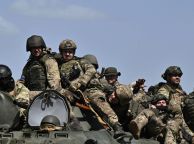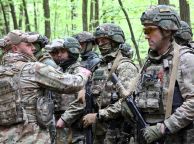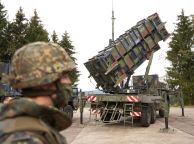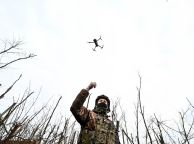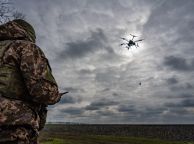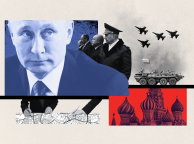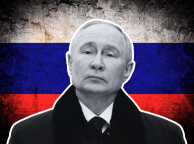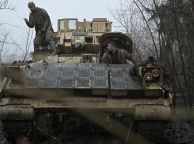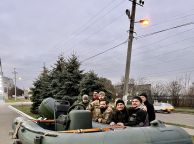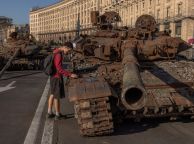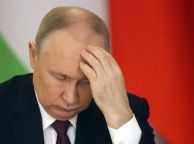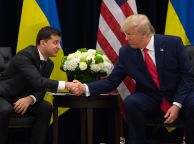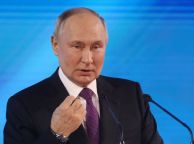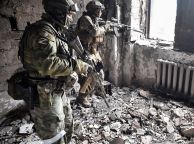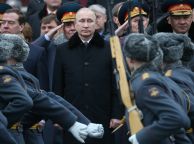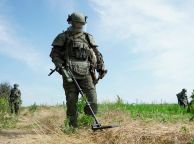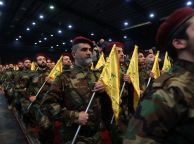By Ellie Cook
The shock of last Friday's deadly attack on Moscow's packed Crocus City Hall venue may be slowly wearing off, but the uncomfortable questions leveled at Russia's intelligence and security services remain.
The Russian capital as well as the entire country are in deep mourning over the March 22 tragedy. At least 137 people were killed, and Russian state media reported that 360 people, including 11 children, were injured as of Wednesday.
Moscow has blamed Ukraine, but Kyiv denounced the accusations as "absurd." ISIS-K, a branch of the Islamic State militant group, claimed responsibility. U.S. intelligence suggested the extremist organization, which operates largely in Afghanistan, Pakistan and Iran, was behind the attack. Often contradictory signaling from Moscow pointed the finger at "radical Islamists" while still seeking to pin the blame on the U.S. and Ukraine.
Investigations are ongoing. But this does not detract from the scrutiny Russia's security and intelligence services are now under, particularly why the FSB, the successor agency to the Soviet-era KGB tasked with counterterrorism, did not foil the attack plot.
The attack was a "notable Russian intelligence and law enforcement failure," the Institute for the Study of War (ISW), a U.S. think tank, said earlier this week.
The reason, experts suggest, is tunnel vision: With all roads in the Kremlin leading to Ukraine, the FSB's attention was divided and ISIS-K slipped through. This, analysts say, is something that's unlikely to change.
The Warnings
Four attackers drove up to the capital's Crocus City Hall shortly before 7 p.m. Moscow time last Friday, the chairman of Russia's Investigative Committee, Alexander Bastrykin, said in a meeting with high-ranking officials, including Russian President Vladimir Putin, earlier this week.
The attackers waited for the audience to file into the hall for just over an hour before opening fire on people in the street close to the building, he said, according to a Kremlin readout.
"Having entered the lobby of the building, and then into the concert hall, they continued shooting at all citizens they noticed, regardless of gender and age," he said. They then set the building on fire before leaving at just after 8:10 p.m., he added.
But according to the U.S., the warnings came weeks earlier.
"Earlier this month, the U.S. government had information about a planned terrorist attack in Moscow, potentially targeting large gatherings, to include concerts," White House National Security Council spokesperson Adrienne Watson, said the day after the attack. The White House said it passed this intelligence on to Russian authorities, as well as issuing a public statement to American citizens in Russia on March 7.
The publicly available warning said the U.S. Embassy in Moscow was "monitoring reports that extremists have imminent plans to target large gatherings in Moscow, to include concerts." It advised U.S. citizens to stay away from large gatherings in the Russian capital for the following two days.
Despite Moscow-Washington relations being more fraught than they have been in decades, it is unclear why the Russian intelligence and security agencies appeared to have done little with this information. The FSB said in early May it had foiled an ISIS-affiliated attack on a synagogue in Moscow.
A Shift in Focus
Experts broadly point to misdirection, with the Kremlin sidelining other threats to concentrate on its war in Ukraine and its campaign of vilifying Kyiv's Western backers.
The FSB has spent the past few years focused on Ukraine as well as the U.S. and U.K., said Ivan Stupak, a former officer in Kyiv's security service who advises the Ukrainian parliament's national security, defense and intelligence committee.
The FSB, along with Russia's military intelligence and foreign intelligence services, let its attention slide from the Middle East during this time, he told Newsweek.
"I think it's a matter of the Kremlin's priorities," he said.
The FSB is neither unstaffed nor underfunded, but it has had its sights firmly set on Ukraine, said Callum Fraser, a research fellow specializing in Russian and Eurasian security at the U.K.'s Royal United Services Institute think tank.
"Now, practically every facet has been pushed into the war effort," he told Newsweek. "To a certain extent, we can say that their eyes have been distracted, not completely from counterterrorism but certainly a lot more than it has been over the past 10 years or so," he said.
There may have been skepticism in the Kremlin, which suspected the warnings were disinformation, Fraser added.
Just days before the attack, the Russian state news agency Tass carried remarks, attributed to Putin, in which the president dismissed Western warnings of an attack as a "provocative" attempt to unsettle Russia.
"All this resembles outright blackmail and the intention to intimidate and destabilize our society," he said.
The Kremlin Rhetoric
Moscow has largely avoided speaking about its security operations. Fielding questions on whether the attack exposed failures in the security and intelligence services, Kremlin spokesperson Dmitry Peskov told the media that "unfortunately our world shows that no city, no country can be completely immune from the threat of terrorism."
But the official line has been confused and contradictory. Rather than acknowledge a threat unrelated to the war in Ukraine and delve into complicated dynamics in Central Asia, Putin said Monday that "the crime was committed by radical Islamists" but sought to tie the U.S. and Ukraine to the incident.
Russian state media said the four men suspected of carrying out the attack were from Tajikistan, a country with historic ties to Russia whose citizens play a significant role in Russia's economy. The men appeared in court late at the weekend, bearing visible signs of torture. The Kremlin declined to comment on this.
The following day, FSB chief Alexander Bortnikov blamed Washington, London, and Kyiv. A top Russian security official and key Putin ally, Nikolai Patrushev, similarly sought to place the blame on Kyiv.
But Alexander Lukashenko, the longtime president of key Russian ally Belarus and a strong Putin supporter, jeopardized the Kremlin narrative by saying the attackers had not fled toward Ukraine but toward his country.
"There is absolutely no evidence that the government of Ukraine had anything to do with this attack," the White House has said.
Ultimately, Moscow's authorities have "not fully figured out how to reconcile its information operations with the reality of its intelligence and law enforcement failure," the ISW think tank said in an analysis on Tuesday.
Now What?
The consequences of the attack for the FSB are murky. There is likely to be a greater physical, and more visible, security presence, Fraser said, but the Ukraine war will probably continue to occupy much of the FSB's time.
The FSB's reputation is unlikely to slip, or fracture, in any obvious way, he added, but it will be hard-pressed to reallocate resources with no end in sight to the war in Ukraine.
